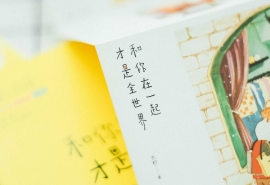
用英语造句(初一)
rain heavythis time of yearbe good forget longerbe busy1.应该是heavy rain或rain heavily吧。
如果是heavy rain:He was caught in heavy rain.他被大雨淋透了。
如果是rain heavily:It rained heavily when I got home.我到家时正下着大雨。
2.We will get together and hold a party this time of year.每年的这个时候我们都会聚在一起开个派对。
3.Eating more vegetable is good for our health.多吃蔬菜有益健康。
4.In winter,the days get shorter and the nights get longer.冬天时白天会变短而晚上会变长。
5.My father is always busy with his work.我爸爸总是忙于工作。
如果是heavy rain:He was caught in heavy rain.他被大雨淋透了。
如果是rain heavily:It rained heavily when I got home.我到家时正下着大雨。
2.We will get together and hold a party this time of year.每年的这个时候我们都会聚在一起开个派对。
3.Eating more vegetable is good for our health.多吃蔬菜有益健康。
4.In winter,the days get shorter and the nights get longer.冬天时白天会变短而晚上会变长。
5.My father is always busy with his work.我爸爸总是忙于工作。
求用when来造句
要十句。when
KK: []
DJ: []
ad.
1. (用作疑问副词)什么时候,何时
I'd like to know when they'll let him out.
我想知道他们什么时候放他。
When did you last see Margaret?
你上一次见到玛格丽特是什么时候?
2. (用作关系副词,引导关系从句)当...时
There were times when I didn't know what to do.
有些时候我不知道该怎么办才好。
conj.
1. 当...时
John got engaged to her when travelling last winter.
去年冬天旅行时,约翰与她订了婚。
Don't get excited when you talk.
你说话时别激动。
2. 既然,考虑到
How can he get the promotion when his boss dislikes him?
既然上司不喜欢他,那他怎么会获得提升呢?
3. 虽然,然而
I had only fifteen dollars on me when the bowww.souquanme.comok I wanted cost twenty.
我身上只带了十五元钱,可是我想买的那本书定价二十元。
4. 在那时,然后
pron.
1. 什么时候,那时
Since when has she taught here?
她从什么时候开始在这儿教书的?
n.
1. (事件发生的)时间[the S]
The Queen's last visit was in May, when she opened the new hospital.
女王上次来访是在五月份,她那时主持了这座医院的落成典礼。
How can they learn anything when they spend all their spare time watching television?
他们把所有的空闲时间都用来看电视了,还能学什麽东西呢?
It was the sort of morning when everything goes wrong.
那天上午就是那样,事事不顺心。
interrogative adverbs
疑问副词((when?,where?,why?,how? 等))
`when' in `I will come when I can' is a subordinating conjunction.
‘when(如果)’在‘I will come when I can(如果能够我就来)’中是从属连词。
Bob's your uncle when ..
如果发生…的情况,请不必着急。
" When" is a temporal conjunction.
“when”是一个时间连接词。
Listen, point and find @what, when@.
听一听,指出并找出“what, when”。
He walks when he might ride.
可以坐车,他却走路。
Please quote our reference when replying.
回信时请注明我方函件编号.
When's the next class?
下一次上课什么时候?
He became quite agitated when he was asked about his criminal past.
当问到他过去的犯罪历史时,他变得十分焦虑不安。
KK: []
DJ: []
ad.
1. (用作疑问副词)什么时候,何时
I'd like to know when they'll let him out.
我想知道他们什么时候放他。
When did you last see Margaret?
你上一次见到玛格丽特是什么时候?
2. (用作关系副词,引导关系从句)当...时
There were times when I didn't know what to do.
有些时候我不知道该怎么办才好。
conj.
1. 当...时
John got engaged to her when travelling last winter.
去年冬天旅行时,约翰与她订了婚。
Don't get excited when you talk.
你说话时别激动。
2. 既然,考虑到
How can he get the promotion when his boss dislikes him?
既然上司不喜欢他,那他怎么会获得提升呢?
3. 虽然,然而
I had only fifteen dollars on me when the bowww.souquanme.comok I wanted cost twenty.
我身上只带了十五元钱,可是我想买的那本书定价二十元。
4. 在那时,然后
pron.
1. 什么时候,那时
Since when has she taught here?
她从什么时候开始在这儿教书的?
n.
1. (事件发生的)时间[the S]
The Queen's last visit was in May, when she opened the new hospital.
女王上次来访是在五月份,她那时主持了这座医院的落成典礼。
How can they learn anything when they spend all their spare time watching television?
他们把所有的空闲时间都用来看电视了,还能学什麽东西呢?
It was the sort of morning when everything goes wrong.
那天上午就是那样,事事不顺心。
interrogative adverbs
疑问副词((when?,where?,why?,how? 等))
`when' in `I will come when I can' is a subordinating conjunction.
‘when(如果)’在‘I will come when I can(如果能够我就来)’中是从属连词。
Bob's your uncle when ..
如果发生…的情况,请不必着急。
" When" is a temporal conjunction.
“when”是一个时间连接词。
Listen, point and find @what, when@.
听一听,指出并找出“what, when”。
He walks when he might ride.
可以坐车,他却走路。
Please quote our reference when replying.
回信时请注明我方函件编号.
When's the next class?
下一次上课什么时候?
He became quite agitated when he was asked about his criminal past.
当问到他过去的犯罪历史时,他变得十分焦虑不安。
初一英语例句
我要复习初一上学期的语法,提供一些经典的例句给我。有好的答案我加分。代词
代词是代替名词的一种词类。大多数代词具有名词和形容词的功能。英语中的代词,按其意义、特征及在句中的作用分为:人称代词、物主代词、指示代词、自身代词、相互代词、疑问代词、关系代词和不定代词八种。
一、人称代词是表示"我"、"你"、"他"、"她"、"它"、
"我们"、"你们"、"他们"的词。人称代词有人称、数和格的变化,见下表:
数 单数 复数
格 主格 宾格 主格 宾格
第一人称 I me we us
第二人称 you you you you
he him they them
第三人称 she her they them
it it they them
如:He is my friend. 他是我的朋友。
It’s me. 是我。
二、 物主代词表示所有关系的代词,也可叫做代词所有格。物主代词分形容性物主代词和名词性物主代词二种,其人物和数的变化见下表。
数 单数 复数
人称 第一 第二 第三 第一 第二 第三
人称 人称 人称 人称 人称 人称
形容词性 my your his/her its our your/their
物主代词
名词性 mine yours his/hers its ours yours/theirs
物主代词
如: I like his car.
我喜欢他的小汽车。
Our school is here,and theirs is there.
我们的学校在这儿,他们的在那儿。
三、 指示代词表示"那个"、"这个"、"这些"、"那些"等指示概念的代词。指示代词有this,that,these,those等。
如: That is a good idea. 那是个好主意。
四、 表示"我自己"、"你自己"、"他自己"、"我们自己"、"你们自己"和"他们自己"等的代词,叫做自身代词,也称为"反身代词"。
如: She was talking to herself. 她自言自语。
五、 表示相互关系的代词叫相互代词,有each other&n bsp;和one another两组,但在运用中,这两组词没什么区别。
如: They love each other. 他们彼此相爱。
六、 不是指明代替任何特定名词的代词叫做不定代词。常见的不定代词有a11,both,each,every等,以及含有some-,any-,no-等的合成代词,如anybody, something,no one。这些不定代词大都可以代替名词和形容词,在句中作主语、宾语、表语和定语, 但none和由some,any,no等构成的复合不定代词只能作主语、宾语或表语;every和no只能作定语。如:
--- Do you have a car? --你有一辆小汽车吗?
--- Yes,I have one. --是的,我有一辆。
--- I don’t know any of them. 他们,搜趣网我一个也不认识。
七、 疑问代词有who,whom,whose,what和which等。在句子中用来构成特殊疑问句。疑问代词都可用作连接代词,引导名词性从句(主语从句、宾语从句和表语从句)
如:Tell me who he is. 告诉我他是谁。
八、 关系代词有who,whom,whose,that,which,as等,可用作引导从句的关联词。它们在定语从句中可作主语、表语、宾语、定语等;另一方面它们又代表主句中为定语从句所修饰的那个名词或代词(通称为先行词)。
如: He is the man whom you have been looking for. 他就是你要找的那个人。
3.1 人称代词的用法
1)人称代词的主格在句子中作主语或主语补语,例如:
John waited a while but eventually he went home.
约翰等了一会儿,最后他回家了。
John hoped the passenger would be Mary and indeed it was she.
约翰希望那位乘客是玛丽,还真是她。
说明:在复合句中,如果主句和从句主语相同,代词主语要用在从句中,名词主语用在主句中,例如:
When he arrived, John went straight to the bank.
约翰一到就直接去银行了。
2)人称代词的宾格在句子中作宾语或介词宾语,但在口语中也能作主语补语,第一人称在省略句中,还可以作主语,例如:
I saw her with them, at least, I thought it was her.
我看到她和他们在一起,至少我认为是她。(her做宾 语,them做介词宾语,her做主语补语)
a. -- Who broke the& nbsp;vase? --谁打碎了花瓶?
b. -- Me. --我。(me做主语补语= It’s me.)
说明:在上面两例句中,her和me分别作主语补语。现代英语中多用宾格,在正式文体中这里应为she和I。
3.2 人称代词之主、宾格的替换
1) 宾格代替主格
a.在简短对话中,当人称代词单独使用或在not 后,多用宾语。
---- I like English. --我喜欢英语。
---- Me too. --我也喜欢。
---- Have more wine? --再来点酒喝吗?
---- Not me. --我可不要了。
b.在表示比较的非正式的文体中,常用宾格代替主格。 但如果比较状语的谓语保留,则主语只能用主格。
He is taller than I/me.
He is taller than I am.
2) 主格代替宾格
a. 在介词but,except 后,有时可用主格代替宾格。
b. 在电话用语中常用主格。
---- I wish to speak to Mary. --我想和玛丽通话。
---- This is she. --我就是玛丽。
注意:在动词be 或to be 后的人称代词视其前面的名词或代词而定。
I thought it was she. 我以为是她。 (主格----主格)
I thought it to be her. (宾格----宾格)
I was taken to be she. 我被当成了她。 (主格----主格)
They took me to be her. 他们把我当成了她。 (宾格----宾格)
3.3 代词的指代问题
1)不定代词 anybody,everybody,nobody,anyone, someone, everyone,no one, 及w搜趣网hoever和person在正式场合使用时,可用he, his, him代替。
Nobody came, did he? 谁也没来,是吗?
2)动物名词的指代一般用it或they代替,有时也用he, she,带有亲切的感情色彩。
Give the cat some food. She is hungry. 给这猫一些吃的。她饿了。
代词是代替名词的一种词类。大多数代词具有名词和形容词的功能。英语中的代词,按其意义、特征及在句中的作用分为:人称代词、物主代词、指示代词、自身代词、相互代词、疑问代词、关系代词和不定代词八种。
一、人称代词是表示"我"、"你"、"他"、"她"、"它"、
"我们"、"你们"、"他们"的词。人称代词有人称、数和格的变化,见下表:
数 单数 复数
格 主格 宾格 主格 宾格
第一人称 I me we us
第二人称 you you you you
he him they them
第三人称 she her they them
it it they them
如:He is my friend. 他是我的朋友。
It’s me. 是我。
二、 物主代词表示所有关系的代词,也可叫做代词所有格。物主代词分形容性物主代词和名词性物主代词二种,其人物和数的变化见下表。
数 单数 复数
人称 第一 第二 第三 第一 第二 第三
人称 人称 人称 人称 人称 人称
形容词性 my your his/her its our your/their
物主代词
名词性 mine yours his/hers its ours yours/theirs
物主代词
如: I like his car.
我喜欢他的小汽车。
Our school is here,and theirs is there.
我们的学校在这儿,他们的在那儿。
三、 指示代词表示"那个"、"这个"、"这些"、"那些"等指示概念的代词。指示代词有this,that,these,those等。
如: That is a good idea. 那是个好主意。
四、 表示"我自己"、"你自己"、"他自己"、"我们自己"、"你们自己"和"他们自己"等的代词,叫做自身代词,也称为"反身代词"。
如: She was talking to herself. 她自言自语。
五、 表示相互关系的代词叫相互代词,有each other&n bsp;和one another两组,但在运用中,这两组词没什么区别。
如: They love each other. 他们彼此相爱。
六、 不是指明代替任何特定名词的代词叫做不定代词。常见的不定代词有a11,both,each,every等,以及含有some-,any-,no-等的合成代词,如anybody, something,no one。这些不定代词大都可以代替名词和形容词,在句中作主语、宾语、表语和定语, 但none和由some,any,no等构成的复合不定代词只能作主语、宾语或表语;every和no只能作定语。如:
--- Do you have a car? --你有一辆小汽车吗?
--- Yes,I have one. --是的,我有一辆。
--- I don’t know any of them. 他们,搜趣网我一个也不认识。
七、 疑问代词有who,whom,whose,what和which等。在句子中用来构成特殊疑问句。疑问代词都可用作连接代词,引导名词性从句(主语从句、宾语从句和表语从句)
如:Tell me who he is. 告诉我他是谁。
八、 关系代词有who,whom,whose,that,which,as等,可用作引导从句的关联词。它们在定语从句中可作主语、表语、宾语、定语等;另一方面它们又代表主句中为定语从句所修饰的那个名词或代词(通称为先行词)。
如: He is the man whom you have been looking for. 他就是你要找的那个人。
3.1 人称代词的用法
1)人称代词的主格在句子中作主语或主语补语,例如:
John waited a while but eventually he went home.
约翰等了一会儿,最后他回家了。
John hoped the passenger would be Mary and indeed it was she.
约翰希望那位乘客是玛丽,还真是她。
说明:在复合句中,如果主句和从句主语相同,代词主语要用在从句中,名词主语用在主句中,例如:
When he arrived, John went straight to the bank.
约翰一到就直接去银行了。
2)人称代词的宾格在句子中作宾语或介词宾语,但在口语中也能作主语补语,第一人称在省略句中,还可以作主语,例如:
I saw her with them, at least, I thought it was her.
我看到她和他们在一起,至少我认为是她。(her做宾 语,them做介词宾语,her做主语补语)
a. -- Who broke the& nbsp;vase? --谁打碎了花瓶?
b. -- Me. --我。(me做主语补语= It’s me.)
说明:在上面两例句中,her和me分别作主语补语。现代英语中多用宾格,在正式文体中这里应为she和I。
3.2 人称代词之主、宾格的替换
1) 宾格代替主格
a.在简短对话中,当人称代词单独使用或在not 后,多用宾语。
---- I like English. --我喜欢英语。
---- Me too. --我也喜欢。
---- Have more wine? --再来点酒喝吗?
---- Not me. --我可不要了。
b.在表示比较的非正式的文体中,常用宾格代替主格。 但如果比较状语的谓语保留,则主语只能用主格。
He is taller than I/me.
He is taller than I am.
2) 主格代替宾格
a. 在介词but,except 后,有时可用主格代替宾格。
b. 在电话用语中常用主格。
---- I wish to speak to Mary. --我想和玛丽通话。
---- This is she. --我就是玛丽。
注意:在动词be 或to be 后的人称代词视其前面的名词或代词而定。
I thought it was she. 我以为是她。 (主格----主格)
I thought it to be her. (宾格----宾格)
I was taken to be she. 我被当成了她。 (主格----主格)
They took me to be her. 他们把我当成了她。 (宾格----宾格)
3.3 代词的指代问题
1)不定代词 anybody,everybody,nobody,anyone, someone, everyone,no one, 及w搜趣网hoever和person在正式场合使用时,可用he, his, him代替。
Nobody came, did he? 谁也没来,是吗?
2)动物名词的指代一般用it或they代替,有时也用he, she,带有亲切的感情色彩。
Give the cat some food. She is hungry. 给这猫一些吃的。她饿了。
用when,what,who,where,how,why各造10个句字
用,when,what,who,where,how,why各造10个句字 我是初一的,尽量简单点,语法重复也可以when:
When will he come?
他什么时候来?
It was a time when motorcars were rare.
那是汽车很罕见的时代。
I still remember the night when Nanjing was liberated.
我还记得南京解放那天晚上的情景。
It was raining when we started.
我们动身时正下着雨。
We'll start when the team leader comes.
队长一来, 我们就出发。
Turn off the switch when anything goes wrong with the machine.
如果机器发生故障, 就把电门关上。
We have only three books when we need five.
虽然我们需要五本书, 却只有三本。
Why use wood when you can use plastic?
既然能用塑料, 为什么还要用木料?
We played outside till sunset, when it began to rain.
我们在户外一直玩到太阳下山, 那时天下起雨来了。
We came a week ago, since when the weather has been bad.
我们一星期前来到这里, 从那时起天气一直不好。
what:
What 's that all about?
那究竟是怎么回事?
What happened?
出了什么事?
What is he?
他是做什么的?
What is he like?
他是怎样搜趣网的人?
What if we should fail?
倘若我们失败了怎么办?
He will take what you offer him.
你给他什么, 他接受什么。
What happened after that was interesting.
在那以后所发生的事情很有趣。
What is the fare?
车(船)费多少?
What does it cost?
那要多少钱?
He has, what is rare, true tolerance.
他具有一般人没有的宽容精神。
who:
He is a man who is of value to the people.
他是一个有益于人民的人。
Whom did you see?
你看见谁了?
That's the man who came to our house yesterday.
那就是昨天到过我们家来的人。
My cousin, who is a painter, is in Japan at present.
我的表哥是画家, 他现在在日本。
Who breaks pays.
损坏者要赔。
It took the new teacher a few days to remember who was who in the class.
这位新教师花了几天时间记住班上学生的名字
how:
How does he do it?
他是怎样做的?
How do you manage to do such a thing?
你是怎么设法做这样的事?
That is how we parted.
我们就是这样分手的。
I asked how he was getting on.
我问他近来怎么样。
I told her how to find me.
我告诉她怎样才能找到我。
I should like to know how to do it well.
我很想知道怎样才能做好这件事。
How many books do you have?
你(共)有多少本书?
How long have you been waiting?
你已经等了多久?
How beautiful it is!
多么美丽呀!
How kind of you!
你真客气!
why:
Why did yowww.souquanme.comu write to him?
你为什么给他写信?
Do you know why he was late?
你知道他为什么迟到吗?
That's the reason why I wrote to him.
那就是我写信给他的原因。
That is (the reason) why he raised the question.
这就是他所以提出问题的原因。
I cannot explain why.
我说不出理由。
Tell me all the whys and wherefores.
把所有的理由和原因都告诉我
Why, it's nearly nine o'clock.
啊, 快要九点了。
Why, even a child knows that!
哎呀, 这连小孩都知道!
Why, of course, I'll do it.
噢, 当然罗, 我要做的。
Why, yes, I will if you wish.
嗯! 当然, 如果你希望这样, 我就去做。
When will he come?
他什么时候来?
It was a time when motorcars were rare.
那是汽车很罕见的时代。
I still remember the night when Nanjing was liberated.
我还记得南京解放那天晚上的情景。
It was raining when we started.
我们动身时正下着雨。
We'll start when the team leader comes.
队长一来, 我们就出发。
Turn off the switch when anything goes wrong with the machine.
如果机器发生故障, 就把电门关上。
We have only three books when we need five.
虽然我们需要五本书, 却只有三本。
Why use wood when you can use plastic?
既然能用塑料, 为什么还要用木料?
We played outside till sunset, when it began to rain.
我们在户外一直玩到太阳下山, 那时天下起雨来了。
We came a week ago, since when the weather has been bad.
我们一星期前来到这里, 从那时起天气一直不好。
what:
What 's that all about?
那究竟是怎么回事?
What happened?
出了什么事?
What is he?
他是做什么的?
What is he like?
他是怎样搜趣网的人?
What if we should fail?
倘若我们失败了怎么办?
He will take what you offer him.
你给他什么, 他接受什么。
What happened after that was interesting.
在那以后所发生的事情很有趣。
What is the fare?
车(船)费多少?
What does it cost?
那要多少钱?
He has, what is rare, true tolerance.
他具有一般人没有的宽容精神。
who:
He is a man who is of value to the people.
他是一个有益于人民的人。
Whom did you see?
你看见谁了?
That's the man who came to our house yesterday.
那就是昨天到过我们家来的人。
My cousin, who is a painter, is in Japan at present.
我的表哥是画家, 他现在在日本。
Who breaks pays.
损坏者要赔。
It took the new teacher a few days to remember who was who in the class.
这位新教师花了几天时间记住班上学生的名字
how:
How does he do it?
他是怎样做的?
How do you manage to do such a thing?
你是怎么设法做这样的事?
That is how we parted.
我们就是这样分手的。
I asked how he was getting on.
我问他近来怎么样。
I told her how to find me.
我告诉她怎样才能找到我。
I should like to know how to do it well.
我很想知道怎样才能做好这件事。
How many books do you have?
你(共)有多少本书?
How long have you been waiting?
你已经等了多久?
How beautiful it is!
多么美丽呀!
How kind of you!
你真客气!
why:
Why did yowww.souquanme.comu write to him?
你为什么给他写信?
Do you know why he was late?
你知道他为什么迟到吗?
That's the reason why I wrote to him.
那就是我写信给他的原因。
That is (the reason) why he raised the question.
这就是他所以提出问题的原因。
I cannot explain why.
我说不出理由。
Tell me all the whys and wherefores.
把所有的理由和原因都告诉我
Why, it's nearly nine o'clock.
啊, 快要九点了。
Why, even a child knows that!
哎呀, 这连小孩都知道!
Why, of course, I'll do it.
噢, 当然罗, 我要做的。
Why, yes, I will if you wish.
嗯! 当然, 如果你希望这样, 我就去做。





